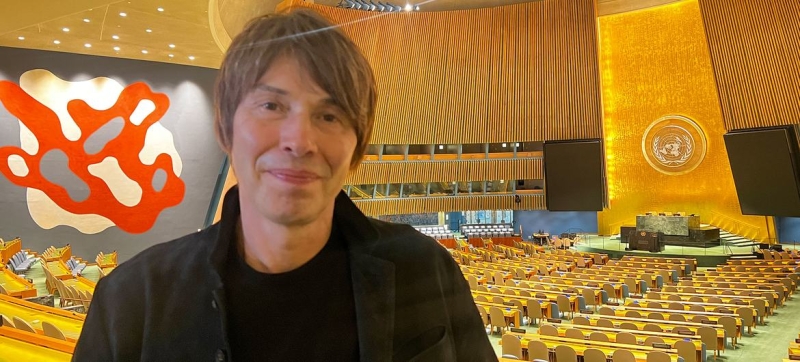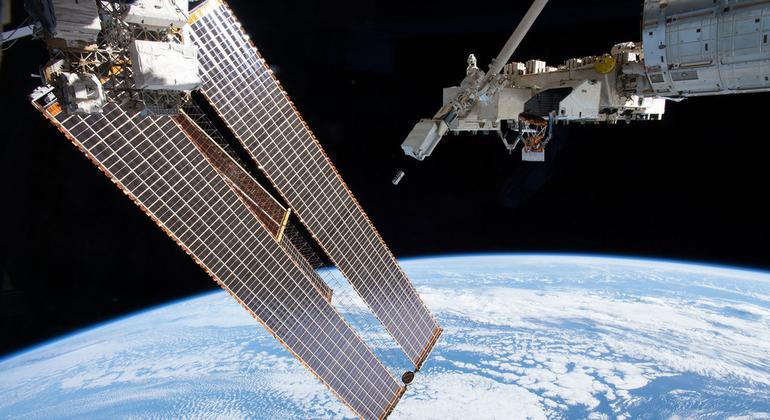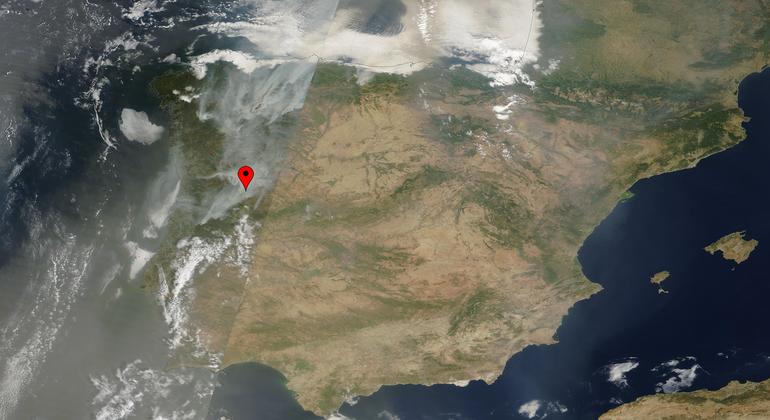
Brian Cox has been appointed Space Defender. Space Defender: We must join forces to become a multi-planetary civilization Economic Development
Space exploration could open up “limitless possibilities” for humanity. It also encourages countries to cooperate, TV presenter and astrophysicist Professor Brian Cox told UN News Service. On Wednesday, the United Nations Office for Outer Space Affairs (UNOSA) named him a Defender of Space.
BC: As far back as I can remember, I have always been interested in astronomy. I watched the Apollo 11 landing on the moon, although I was about a year old at the time, and I don’t remember it.
Space is one of the key areas of growth for the world economy. The numbers are staggering. The “space economy” is estimated to be around $2 trillion by 2035, $600 to $700 billion more than today. Beyond the economic impact of space, it has always been an area that brings people together.
The International Space Station is one of the places where we collaborate because we want to. But also because we have to do this, space is not part of any one country.
It is an area that can expand, which offers literally limitless possibilities, but it also obliges us to cooperate.
UN News Service: The idea of cooperation is very important. Is this one of the reasons why you want to work with the UN? Space, of course, is one of them.
It makes no sense to talk about planetary defense, lunar exploration, mining of asteroids, or access to the solar system at the level of individual countries. Nothing will come of this.
There are areas in which we are forced to cooperate on a global level. And I think that’s a good thing, because it forces us to solve difficult problems associated with diplomacy, technical negotiations.

UN News Service: What do you think you can personally change in your new role?
BC: It is vital that we expand our work, economy and ambitions in space.
My specialty, besides being something of an amateur enthusiast, is trying to tell, explain to as wide an audience as possible why space is so important and beautiful.
And, by the way, this audience is not only the public, but also political leaders, industrial leaders who may not realize the potential of space.
Science is one of the foundations of our civilization, and if its advantages are not explained to people, they will not be able to participate in its strengthening and development. If there is a deficit of understanding, optimal decisions are not made.
If this all sounds a little dry, we also ask fundamental questions, such as whether we are alone in the Universe?
UN News Service: I imagine this is a question you get asked more often total.
BC: This is a great question. I think we all wonder about it. Answer: we don’t know.
We can formulate this more scientifically. How far beyond Earth do we need to go to discover life?UN News Service: Are there any misconceptions about space that you would like to dispel?
BC: Of course, there are misconceptions in people’s ideas about space, which I think arise simply from a lack of information. The main misconception is that space exploration is a luxury, and industrialization of low Earth orbit, lunar and asteroid exploration should be left for the future.
I often hear that we should first solve our problems here on Earth before worrying about space.
The truth is that space already plays a critical role in solving problems that we encounter on Earth.
An obvious example is understanding how our climate is changing.
Satellite observations of the atmosphere, ocean temperatures, and other factors play a critical role in our understanding of how climate is changing and in solving the problems we face now and that we ourselves created in the pre-space era.

Global Positioning, Satellite Navigation GPS are critical not only for determining your location using your phone, but also for air traffic control, supply chain management, optimizing the way goods and materials are shipped around the planet, and so on.
There are many examples of how space is already having a positive impact on Earth. And there will be more and more such examples in the future.
UN News Service: How do you plan to advocate for the peaceful and inclusive use of outer space, and especially the participation of developing people in it? countries?
BC: I hope that I can contribute to the democratization of space and advocate that not only major players participate in its exploration.
Arguments in The arguments for all nations having a say in the space economy are similar to the arguments for nations having a say in the economies that exist on the surface of the Earth and in the oceans.
In certain areas we must act as one planet. Space is one of the best examples, but you can also add climate change, fighting pandemics or managing artificial intelligence. no.
UN News Service: How do you think developing countries can participate more actively in the space economy?
BC: I think we’re in transformative phase when it comes to going beyond the Earth, industrialization and the use of space. This means that the rules that everyone will have to agree to are being developed now.
How do we manage traffic in space? How do we ensure equal access [to outer space]? If we start building bases on the Moon, how do we manage them? How do we manage this the same way we manage, for example, access to Antarctica?
Obviously, these are global issues. They concern everyone, every country.
All countries must join forces to develop a structure that will allow us to become a multiplanetary civilization.
I would like us to become an interstellar civilization, but I will not live to see that.
